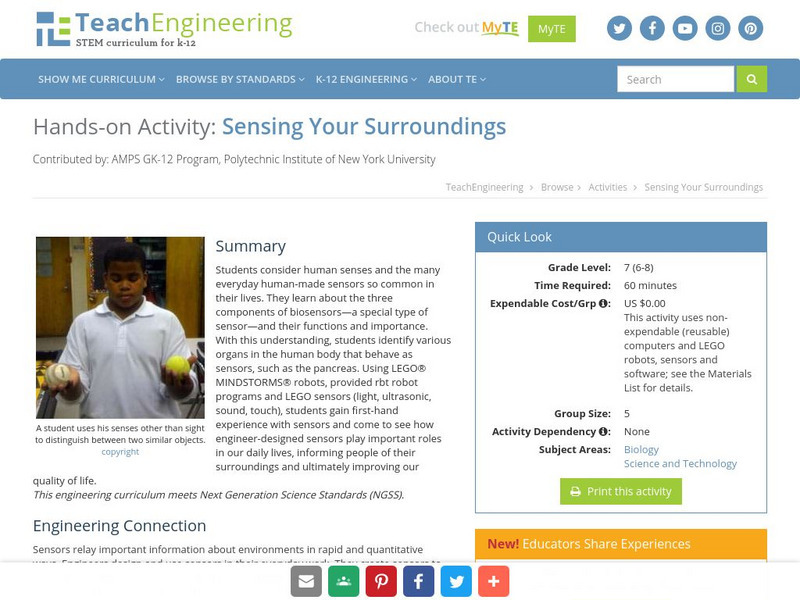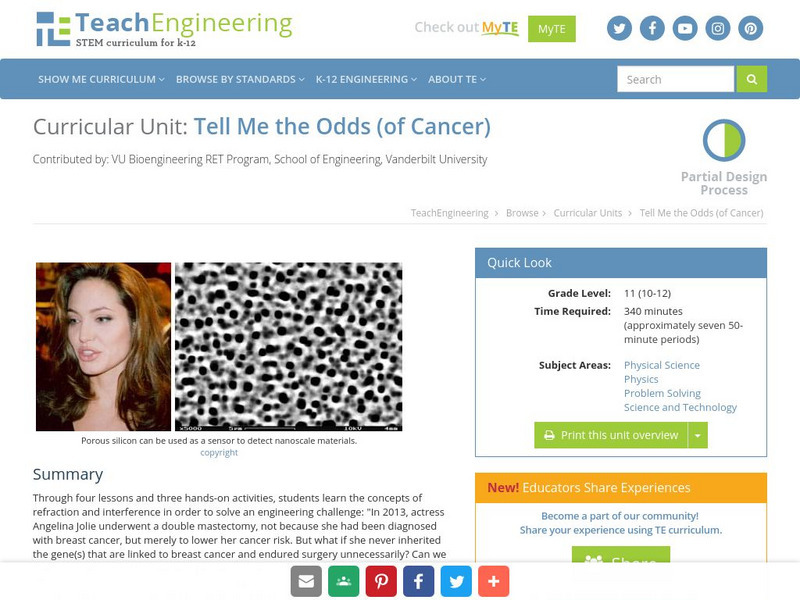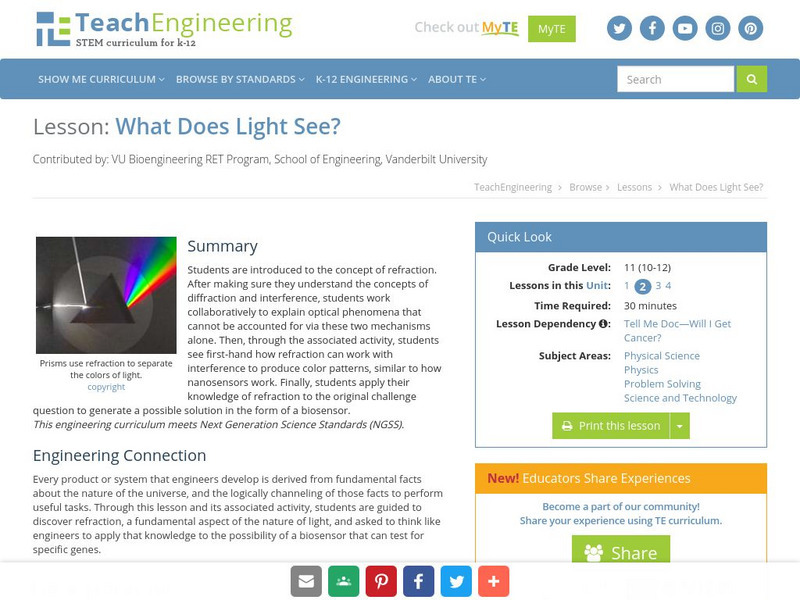TeachEngineering
Teach Engineering: Sensing Your Surroundings
Students learn about the components and functions of biosensors. Using LEGO MINDSTORMS NXT robots and sensors, they discover how engineer-designed sensors play important roles in our daily lives, informing people of their surroundings...
TeachEngineering
Teach Engineering: When Silicon Talks
In this activity, students tackle this aspect of engineering as they solve problems for precise angles and speeds, and predict data output when samples are altered.
TeachEngineering
Teach Engineering: Tell Me the Odds (Of Cancer)
A seven-lesson unit where students learn the concepts of refraction and interference in order to solve this engineering challenge: In 2013, actress Angelina Jolie underwent a double mastectomy, not because she had been diagnosed with...
TeachEngineering
Teach Engineering: Tell Me Doc, Will I Get Cancer?
Young scholars are introduced to the challenge called, Tell Me the Odds, discovering a new way to assess a person's risk of breast cancer. Solving this challenge requires knowledge of refraction and the properties of light.
TeachEngineering
Teach Engineering: What Does Light See?
Students are introduced to the concept of refraction. After making sure they understand the concepts of diffraction and interference, students work collaboratively to explain optical phenomena that cannot be accounted for via these two...
TeachEngineering
Teach Engineering: Quantifying Refraction
Students learn the relevant equations for refraction (index of refraction and Snell's law) and how to use them to predict the behavior of light waves in specified scenarios.
TeachEngineering
Teach Engineering: Who's Hitchhiking in Your Food?
How can you tell if harmful bacteria are growing in your food? Students learn to culture bacteria in order to examine ground meat and bagged salad samples, looking for common foodborne bacteria such as E. coli or salmonella. After 2-7...








